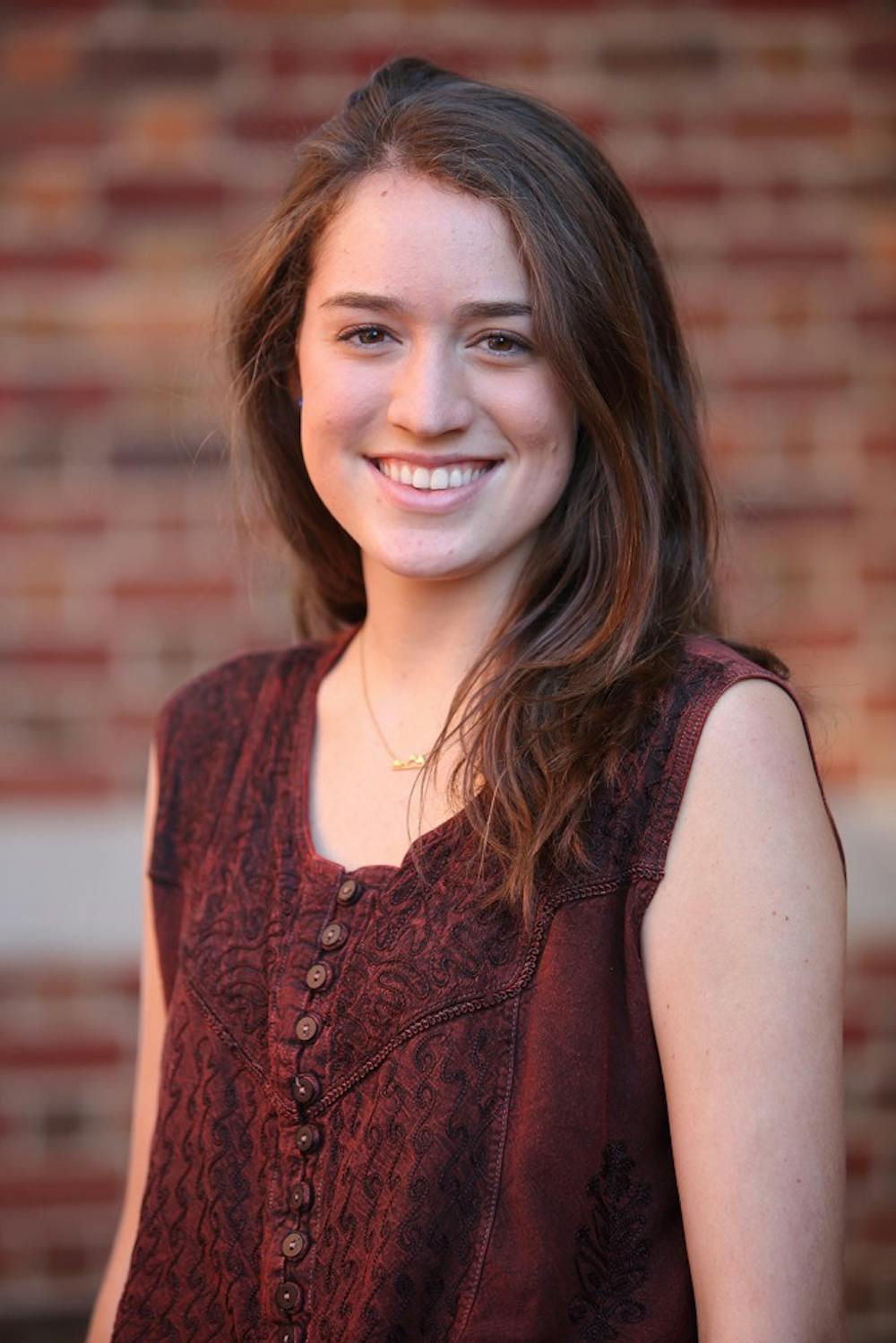Last Monday in an eastbound 737, I looked at — rather than through — the multi-paned airplane window. The aircraft’s D.C. to Los Angeles route was a sweeping line across the states, and beyond the window lay ranges of cloudy peaks. My mind, while physically within the confines of the pressurized airplane cabin, was firmly located in my hometown, where my feet would land in several hours.
The week before had been a rough one, wrought with typical college woes of inadequacy and doubt. I could barely wait to release the rush of relief that was sure to erupt once I got back home, played Nintendo 64 and pet my dog’s soft ears.
In my mind, I was sitting in my backyard. There was the verdant wild grass of the hillside, dotted with hundreds of oak trees. A cluster of turkeys sat unbothered — except for the occasional screechy gobble — by the pool, and I was sitting in a lounge chair near them on the patio. A large peach tree rustled with the mild valley wind. When I summon memories of home, this is the place I situate myself.
Why the backyard? Why not my kitchen where, let’s face it, I spend most of my hours at home, or the family room, where reality television entertains me for hours and outrages my dad to a humorous effect? The feeling of nostalgia has a weird way of informing our understanding of a place and its past.
The next day I had finally reached my destination, thankfully no longer strapped into the seat I’d thought would double as my flotation device when the plane crash-landed — a turbulence-induced fear of mine. The plane had safely landed, and here was home.
In the morning, I walked into the backyard of the place I had lived for my whole life before college. There they were, as my mind had rendered them the day earlier — the hill, the oaks, the hilarious turkeys, the pool. But there was no peach tree. I had been wrong — the smooth ground indicated no tree had ever existed where I’d thought it did. It wasn’t a big deal, but it prompted a question. Had my memory morphed my understanding about the University as well? I’d recognized during the plane ride that the semester had been plagued by an admixture of academic apathy and stress. How did my mind, now physically removed by almost 3,000 miles, make sense of it all now?
All of a sudden, I remembered the time five years ago when I, pimple-faced and with a heavy black brace enclosing a knee of recently-torn ligaments, visited U.Va. for the first time. It was the summer of 2012, and my brother and sister were both students at public California universities, but I had lately been dreaming of ditching the west coast after high school for someplace faraway.
My family did little more than drive around on that muggy July day — I remember my father’s rising frustration with our continued failure to find a parking spot. Our circuitous driving paired with the irritating, high-pitched squeals emanating from the backseat — my siblings and I had developed a code to denote when we saw someone we deemed attractive by “making a dolphin noise” — and the extreme humidity made for an imperfect visit. Despite all this, I remember thinking for the first time, “I would be so lucky to go to school here.”
In the grand scheme of things, it’s pretty innocuous to be mistaken about a couple physical features when recalling a place that is important to you. You may forget a tree, but you never forget a feeling. When I picture my backyard, even if it is inaccurately mapped in my mind, I focus on how it feels to be there. My backyard is a comfortable wilderness — it elicits both excitement and safety. Similarly, when I remember U.Va., I think of the palpable sense I got of its history. The color of the thousands of bricks or location of magnolia-imprinted “Welcome to Charlottesville” signs are not as important as my impression of the city’s cultural heritage. That initial impression, and subsequent memory, make my heart sing, because it struck in me an awareness of my interest in history. Four years later, I am here studying what I love.
Whenever I doubt this school — including the ugly parts of its past and present — I usher in this memory. Memory is not history, and it’s not a reconstruction of “how it really was,” but it is laden with emotion. When I remember the feeling I got here during my first, flawed visit, I feel happy in knowing that, yes, this is why I go to U.Va.







